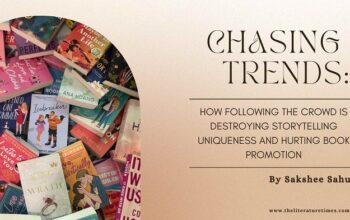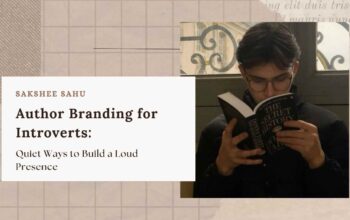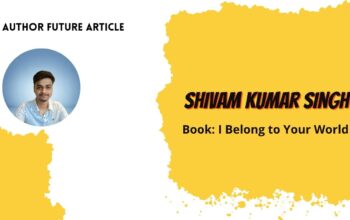Piyusha is a Masters in Bio-Chemistry and is passionate about teaching Physics & Chemistry. She is excited about reading, researching, and developing utilitarian practices from the Sanatana literature. She is also a fitness freak and passionate about Yoga.
She’s a positive-minded person who believes in strong value systems imparted by her parents. She is passionately associated with NGOs that support a chain of orphanages and old-age homes.
Piyusha is married to Pankaj Lochan, who is an author of several management books and other literature.
Author Interview
The Literature Times: Before we begin with the interview, I would like to extend a warm congratulation from our team for “The Clown.” It seems to have become quite a sensation soon after its publication. How do you feel about it?
Piyusha Pushp: Thank you for your wises. It feels great that the piece of work has finally found its way into the hearts of people.
The Literature Times: Tell us the story behind the creation of “The Clown.” What were the events that led to its creation?
Piyusha Pushp: The Clown is the second book in the Karmic trilogy that’s based on the “Gana”. The 3 books in this trilogy take a completely different dissection of the karma theory. They talk about the “cause & effect” in the karma theory with an explanation focused on following three aspects – the Ganas, Varnas and the Gunas. The books examine the effect of 3 ganas and their human manifestations through a lens of varna and guna (what impact do different varna and guna have on the behavior of different people with the same gana. This would connect the cause & effect of human behavior, i.e., the impact on others and then, the explain the karmic retributions (consequence) thereof!
So, what the trilogy sums up is simple – that while the manushya and the rakshasa are more commonly seen, the deva is humanly possible to be achieved by everyone by adopting sat-guna!
The Literature Times: As an author, do you think “The Clown” successfully conveys all that you had in mind? Or would there be more to come through your pen?
Piyusha Pushp: On the subject that were dealing with, the book conveys what were were trying to communicate to the larger mass. The third book in the trilogy would be about the Deva-gana and would discuss the conversion of bad into good, and consequently the larger meaning of the word gana. They mostly do good, irrespective of who they interact with, and clean the ecosystem with positivity.
So, the third book would discuss stories of virtuous Sat-vik deva-ganas who were able to help people by circumventing cycles of disasters around them by proactively preventing them.
The Literature Times: “The Clown” is developed in an abstract manner that reaches the readers in no time. Did you have any other ideas for its construction or chose the poetry format for writing in the first place?
Piyusha Pushp: The poems for the 7 stories were all written by Pankaj, my husband. Just as I helped him with the stories of Sigma, the first book, he also helped me immensely. Whenever I had a doubt with the characters and the construction of the stories, I reached out to him.
The Literature Times: “The Clown” as a book is difficult to be restricted to one category. Yet, if you were to categorize, which would that category be?
Piyusha Pushp: It is for people who believe in Karma and who want to know more about it. It would also interest people who believe in Indian Astrology as a scientific way of helping people course-correct their lives.
The Literature Times: As an author of “The Clown,” would you describe yourself being influenced by other authors? Which author would they be?
Piyusha Pushp: I don’t read fiction at all. I mostly read only the Sanatana scriptures like Vedas, Puranas, Upanishads, etc. But I am sure India has very promising authors.
The Literature Times: “The Clown” has introduced you as a promising writer. Can the readers expect more work from you in the future? Would you please share your plans?
Piyusha Pushp: Yes, me and Pankaj are writing the third book in the trilogy together. Its gonna be called The DEVA (most likely).
We also intend to start a crime thriller series as an author duo. Pankaj is really interested in writing crime thrillers.
The Literature Times: How easy or difficult was it for you to pick situations and build up on them and at the same time remain objective about them in “The Clown”?
Piyusha Pushp: I have mostly written about the people whom I knew and observed in last two decades of my life. Pankaj & I used to talk about them. And some of them have found their way into my book.
The Literature Times: As a title, “The Clown” carries associations that touch multiple dimensions. What is the story behind its creation?
Piyusha Pushp: While we were examining the theory of “rakshasa-gana” based behavior, we observed more than 50 people around us, both in professional and personal circles, including our relatives and friends. We found that all of them very powerful people – but many of them misused their powers and eroded value for others rather than creating value. We saw that, despite having knowledge, high achievements and high aspirations, these people impacted the society negatively.
A realization dawned upon us that they were not “rakhshasa-gana” but CLOWNS or jokers; for they made fun of God’s gift of powers that they possessed. They could have all created so much of positive value for the world.
The Literature Times: How would you describe your literary endeavours and all that went into your making as a writer before “The Clown” materialized?
Piyusha Pushp: My husband Pankaj and I were deep into “sanatana” and Vedic astrology. Both of us are deeply spiritual. While we delved deep into the classic theories, we realized that there was so much at the interface or science and arts – waiting for someone to interpret and tell the world in a scientific and easy-to-understand manner. We decided to do it.
The Literature Times: There are so many unique perspectives in your “The Clown.” What is the most challenging thing about writing such complexity in a simpler version?
Piyusha Pushp: Our belief that “sanatana” needs to be simplified for people made it possible. The 3x4x3 matrix on the gana-varna-guna theory is our creation that happened after the insight dawned upon us.
The Literature Times: I wish you luck with your future ventures and hope to read more powerful and exciting books from your pen. Thank you for sparing your time.
Piyusha Pushp: Thank you.



